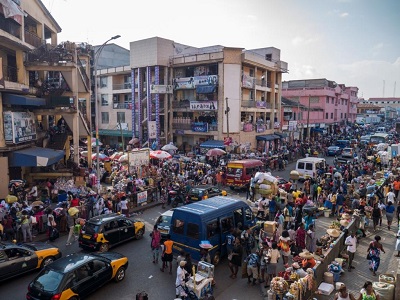Ghana’s Economy Ranked Among 14 African Economies at High Risk of Short-Term and Commercial Vulnerability
Ghana has been ranked among 14 African economies at high risk of short-term and commercial vulnerability, according to the latest Allianz Trade Q3 2025 Global Risk Assessment Report.
The report places Ghana 11th on the list, following Gambia, Ethiopia, Eritrea, Equatorial Guinea, Egypt, Congo, Chad, the Central African Republic, Burundi, and Burkina Faso, which emerged as the most vulnerable economy on the continent. Other countries on the list include Guinea, Guinea-Bissau, and Lesotho.
According to Allianz Trade, these economies are facing heightened financing and commercial risks amid tightening global liquidity conditions, increasing concerns about debt sustainability, currency volatility, and limited access to international capital markets.
The report notes that fragile liquidity positions and persistent trade disruptions continue to expose emerging and frontier markets, particularly in Sub-Saharan Africa, to global economic shocks.
“Financing and commercial risk measures how vulnerable countries are to short-term shocks, ranging from liquidity pressures between companies to disruptions in trade activity,” the report explained.
In practical terms, this means businesses in high-risk countries are more likely to experience payment delays, credit constraints, or reduced access to cross-border financing.
Out of 147 economies assessed, 90 countries were categorized as low-risk, indicating strong access to global financing and stable payment systems, while 57 countries were classified as high-risk, 27 of which are in Africa.
This positions Africa as the region most exposed to potential liquidity pressures and trade disruptions, reflecting the continent’s ongoing struggle with debt overhangs, foreign exchange shortages, and constrained fiscal buffers.
Allianz Trade observed that high-risk countries are largely concentrated in Sub-Saharan Africa, parts of the Middle East, and conflict-affected regions such as Ukraine, Syria, and Sudan.
Within Africa, economies such as Ghana, Egypt, Ethiopia, Sudan, and Zimbabwe continue to grapple with rising debt levels, volatile exchange rates, and limited access to international capital markets.
Since 2022, these economies have faced multiple headwinds, including tightening global financial conditions, currency depreciation, and declining investor confidence.
In Ghana’s case, the recent domestic and external debt restructuring and continued exchange rate pressures have underscored the fragility of liquidity positions across emerging markets.
Similarly, countries like Burkina Faso, Mali, and Niger are contending with political instability, further weakening investor confidence and disrupting regional trade routes.
Despite these challenges, analysts note that some African governments are implementing policy reforms to strengthen financial resilience. Initiatives such as currency realignment, regional trade integration, and the rollout of payment infrastructure under the African Continental Free Trade Area (AfCFTA) are seen as potential buffers against external shocks.
However, the Allianz report cautions that without stronger fiscal discipline, economic diversification, and affordable financing access, many African economies will remain highly vulnerable to global financial volatility.








